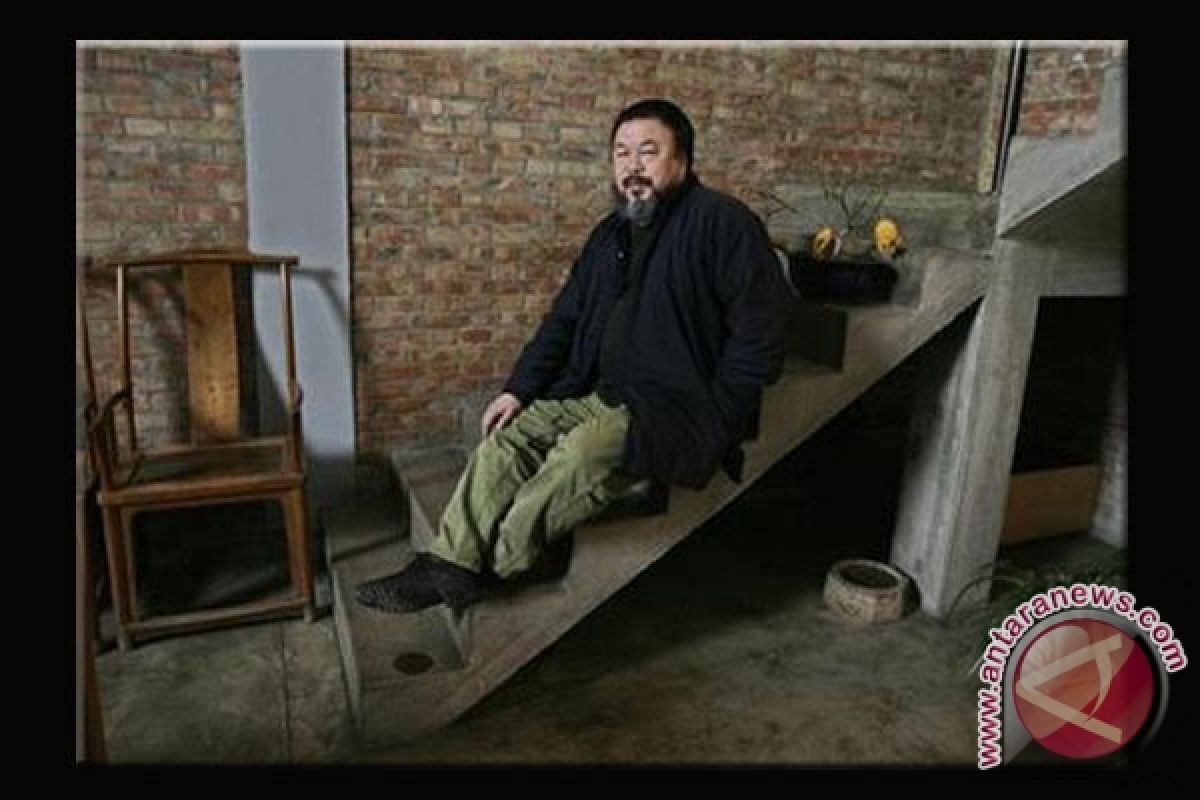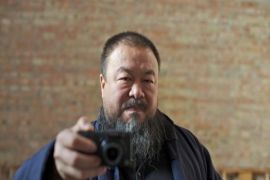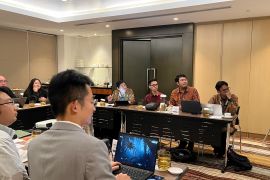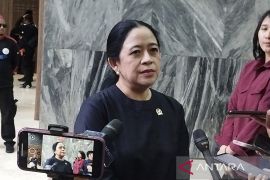"Weiwei was talking about all of the exciting possibilities of the Internet well..."Los Angeles (ANTARA News/Reuters) - Artist Ai Weiwei has made headlines worldwide since his detention in China last year, but outside art circles few people in western countries such as the United States know of his efforts to push for a more open government in his country.
As an artist, he is an eclectic talent who draws, paints, sculpts and does conceptual art, photography, cultural criticism and architecture.
Now, a film documentary, "Ai Weiwei: Never Sorry" sheds light on the man behind the dissident artist, with a goal that U.S. and other audiences might learn more about Chinese culture and, perhaps, about themselves.
Ai, 54, disappeared in his country in April 2011, and after an outcry by art lovers, free speech activists and politicians, he was found to have been jailed by Chinese officials.
He was released after 81 days in detention, and this month, a Chinese court upheld a $2.4 million tax evasion fine against him that is largely considered a way to muzzle his voice.
Those are the headlines, but who is the man?
"For me, that was one of the driving questions. Who is this guy?," Alison Klayman, the filmmaker of "Ai Weiwei: Never Sorry," now playing in U.S. theaters, told Reuters.
"I really feel like what I found, and what is reflected in `Never Sorry,` is someone who is...an incredibly effective
communicator, a political organizer, a social commentator. But above all, he is an artist, and an artist who is motivated by the desire to push his country forward," Klayman said.
Klayman first met Ai while living in China and working for National Public Radio, PBS show "Frontline" and other US media outlets. She had been asked to tape an interview with Ai following his role as artistic consultant for the 2008 Beijing Olympic stadium, dubbed the Bird`s Nest for its striking design.
While Ai`s work on the Bird`s Nest vaulted him to worldwide fame, he was already well-known in China for his art, design, activism and family. His father is Chinese poet Ai Qing, and after spending the 1980s studying in the United States, Ai Weiwei returned to China to be with his dad, who died in 1996.
In the 1990s, Ai Weiwei published a series of underground books about young and emerging artists who were bucking convention. In the 2000s, he challenged official China`s version of life behind the Great Wall with, among other work, paintings that showed a hand giving the middle finger to images symbolizing Chinese authority such as Tiananmen Square.
In 2007, he denounced the Bird`s Nest and the Beijing Olympics as political propaganda, and in 2008, Ai began work to expose the names of more than 5,000 children killed in a massive earthquake -- names the government did not want disclosed.
SPEECH IS FREE
"The question: `Why is he not in jail?` was one that I asked pretty much all of my interviewees, certainly all the ones that were done before his (2011) detention," Klayman said. "Actually, it`s something that I asked Weiwei within the first week or two of us filming together...And his response was, `I don`t know...It`s not up to me whether I`m in jail or not.`"
Ai`s answer is simple and complex at the same time because it requires understanding societal shifts in modern China, and his life and work seem a fitting vehicle to explore the country`s changing cultural landscape.
What emerges in "Never Sorry" is a portrait of a man who deeply loves his country and fellow citizens, yet also wants to expose his government`s suppression of individual rights.
Following his work on the Bird`s Nest, Ai exploded onto the international art scene, but it was his use of Twitter that gave his voice even wider reach around the globe and earned the wrath of Chinese officials who`d already shut down his personal blog.
"Weiwei was talking about all of the exciting possibilities of the Internet well before the Arab Spring and Wikileaks and all these things in current affairs," said Klayman.
Yet, as much as "Never Sorry" paints a portrait of an artist and sheds some light on Chinese life, Klayman also hopes it challenges western audiences to express themselves without fear of retribution, whether by family, friends or governments.
"It really makes people inspired to think, `What can I do in my world, and where do I need to put it out there, put it on the line, risk something to make my world a better place," she said.
(U.C005/M016)
Editor: Priyambodo RH
Copyright © ANTARA 2012










